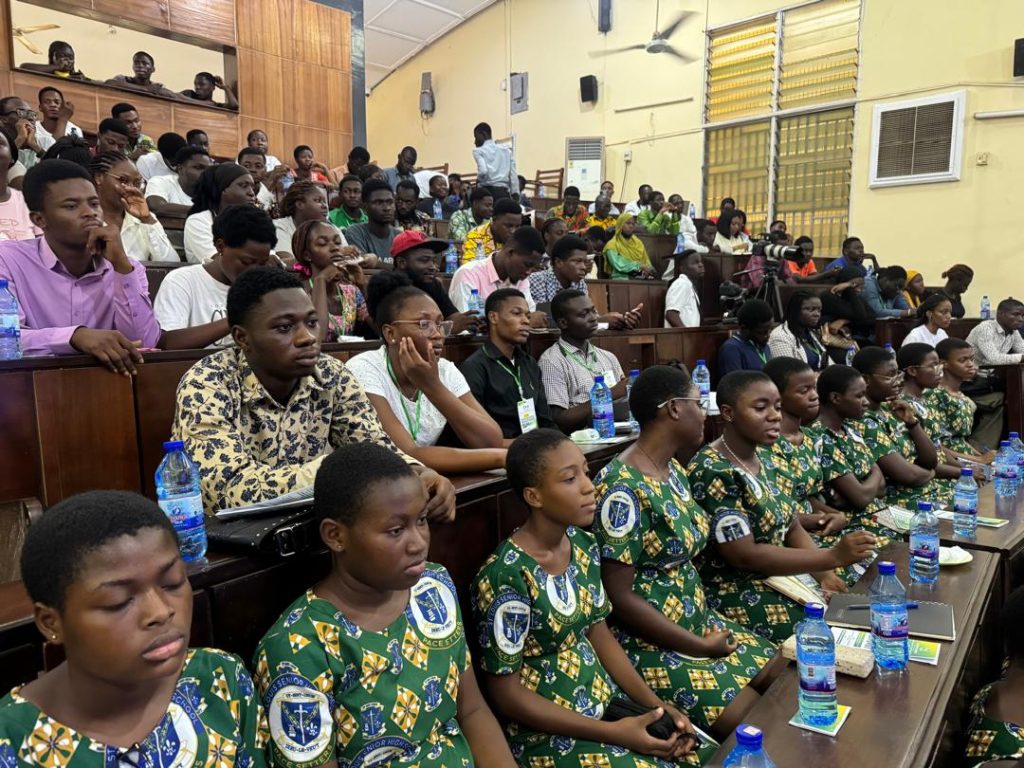
Bridging the Gap: Science, Technology, and Innovation for Ghana’s Agricultural Future
Ghana is at a pivotal moment in its journey toward sustainable economic growth and food security. Researchers and industry leaders are emphasizing the urgent need to integrate science, technology, and innovation into national development policies to address existing gaps in the country’s agricultural and economic transformation.
Professor Maxwell Darko Asante, Director of the Crops Research Institute (CRI) under the Council for Scientific and Industrial Research (CSIR), highlighted the critical role of technology in solving food insecurity and economic challenges. He pointed out that despite the potential, Ghana continues to import over 2 billion worth of food annually, which he described as “very unacceptable.” This situation underscores the need for a more strategic approach to leveraging scientific advancements.
At the 2025 Researchers and Investors’ Summit held in Kumasi, Prof. Asante emphasized the importance of collaboration between researchers and investors. He argued that such partnerships could significantly enhance job creation and improve livelihoods through a science-led transformation of agriculture. His call for unity aims to make Ghana self-sufficient in food and raw materials while boosting the economy.
The summit, organized by Agri Eye Consult in collaboration with CSIR-CRI, the Faculty of Agriculture at Kwame Nkrumah University of Science and Technology (KNUST), and the Ghana Agricultural and Rural Development Journalists Association (GARDJA), focused on bridging the gap between innovation and investment. The theme, “Bridging Innovation and Investment Gaps for a Resilient Agriculture in Ghana,” aimed to stimulate both local and international investment in agricultural innovations.
Prof. Fred Nimoh, Dean of the Faculty of Agriculture at KNUST, noted that while numerous research findings have been generated, their impact remains limited without proper investment and implementation. He pointed to developed countries as examples where linking research to investment has led to reduced food insecurity and lower dependency on imports. For Ghana, adopting a similar model could be transformative.
Dr. Amos Rutherford Azinu, CEO of Legacy Crop Improvement Centre, urged researchers to focus on practical applications of their work. He stressed the importance of collaboration between researchers, industry players, and investors to ensure that innovations are commercialized and scaled effectively. Additionally, he called for supportive policies from policymakers, including regulatory frameworks, infrastructure investment, and education initiatives that prepare the next generation for modern agriculture.
Mr. Richmond Frimpong, Executive Director of Agri Eye Consult, described Ghana as being at a crucial crossroads. While the country possesses abundant scientific knowledge and talent, there is a lack of synergy between research and capital. He emphasized the need for a deliberate fusion of knowledge and investment in research and risk-taking, stating, “Innovation must not remain locked in laboratories.”
Frimpong also advocated for government intervention in the form of tax incentives, such as tax holidays, for local manufacturing firms within the agricultural value chain. Such measures could encourage investment and boost productivity, further strengthening the agribusiness sector.
The summit served as a platform for scientists, students, and investors to come together and explore ways to revitalize Ghana’s agribusiness sector through data-driven and climate-smart solutions. It highlighted the importance of aligning research efforts with investment strategies to create a resilient and sustainable agricultural system.
As Ghana moves forward, the integration of science, technology, and innovation into national policies will be key to achieving long-term economic and agricultural stability. The insights and recommendations from the summit provide a roadmap for stakeholders to collaborate and drive meaningful change.
Post a Comment